Cravat tied on 50 Zagreb monuments as Croatian invention celebrated
Page 1 of 1
 Cravat tied on 50 Zagreb monuments as Croatian invention celebrated
Cravat tied on 50 Zagreb monuments as Croatian invention celebrated
Cravat tied on 50 Zagreb monuments as Croatian invention celebrated
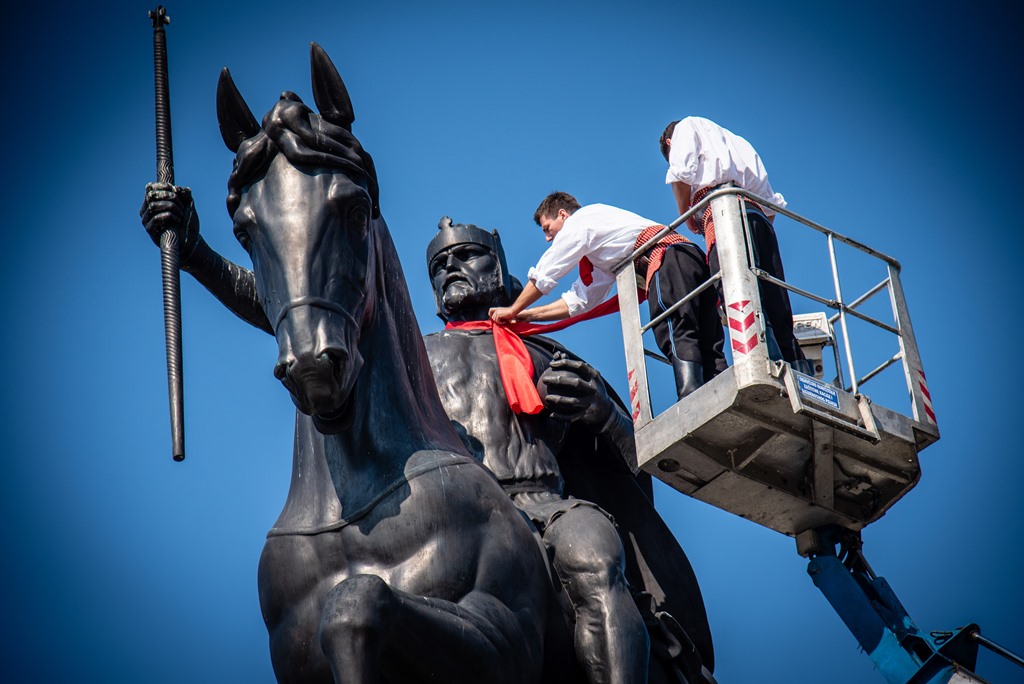
Cravat being tied on King Tomislav (Photo: Dhar Media)
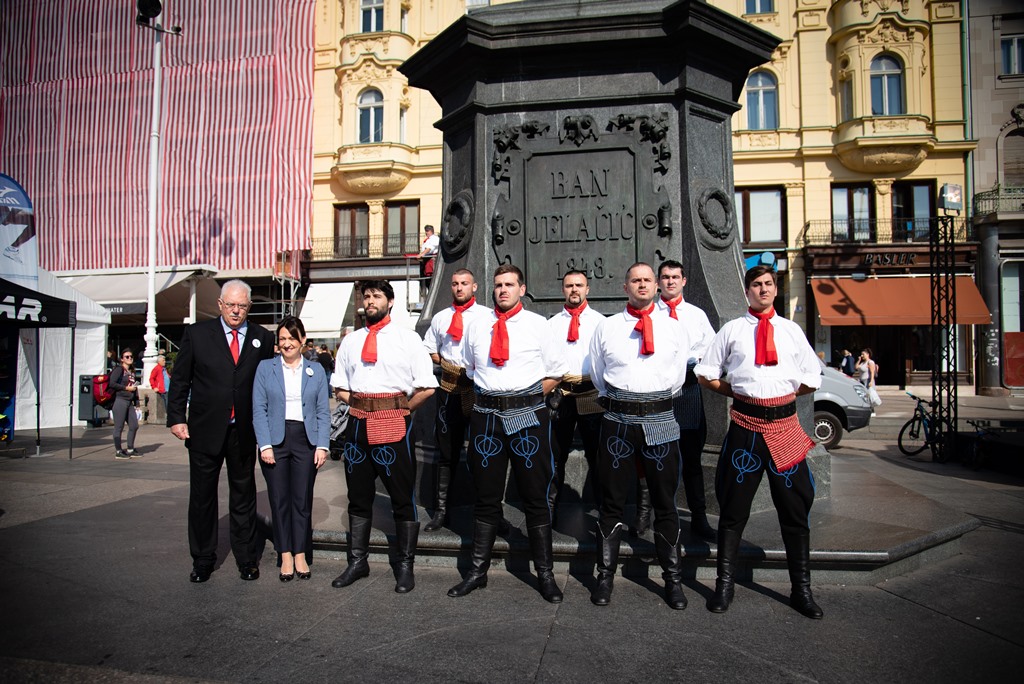
(Photo: Dhar Media)
The oldest Croatian portrait of a person wearing a cravat was painted in Dubrovnik in 1622 and depicted the great Croatian poet Ivan Gundulić with a scarf tied around his neck like a cravat. This portrait is currently safeguarded at the Rector’s Palace.
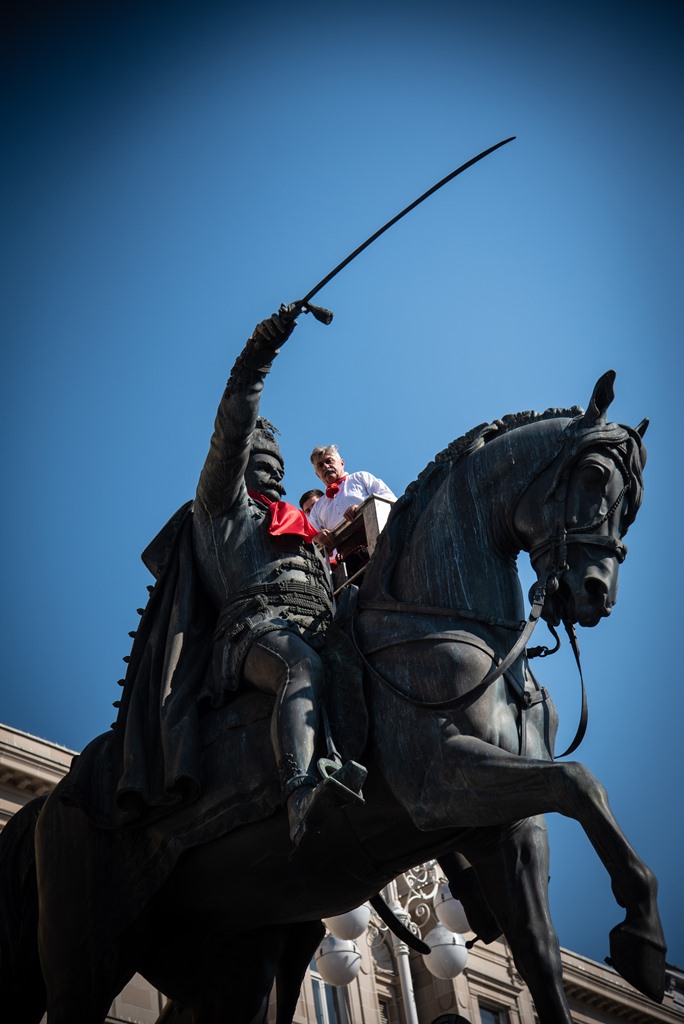
(Photo: Dhar Media)
The festival opened with the Royal Cravates Regiment performing the changing of the guards at St. Mark’s Square, recalling the historical significance of Croats in the Thirty Years’ War, after which the name of the cravat which the soldiers wore tied around the neck, occurred.
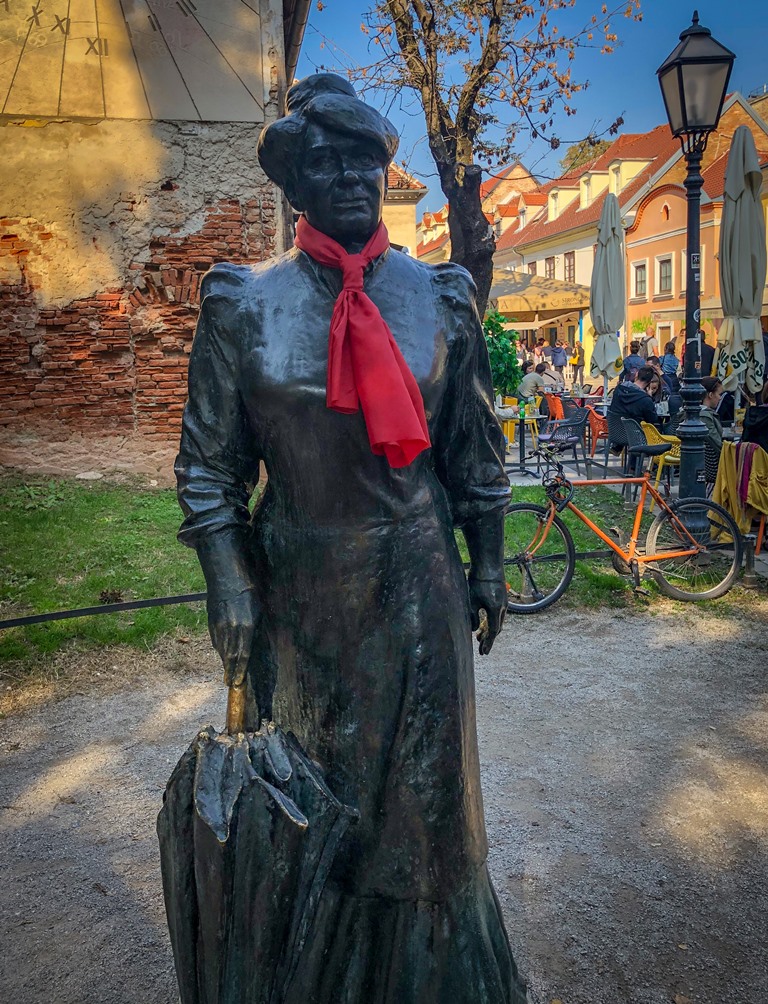
(Photo: Dhar Media)
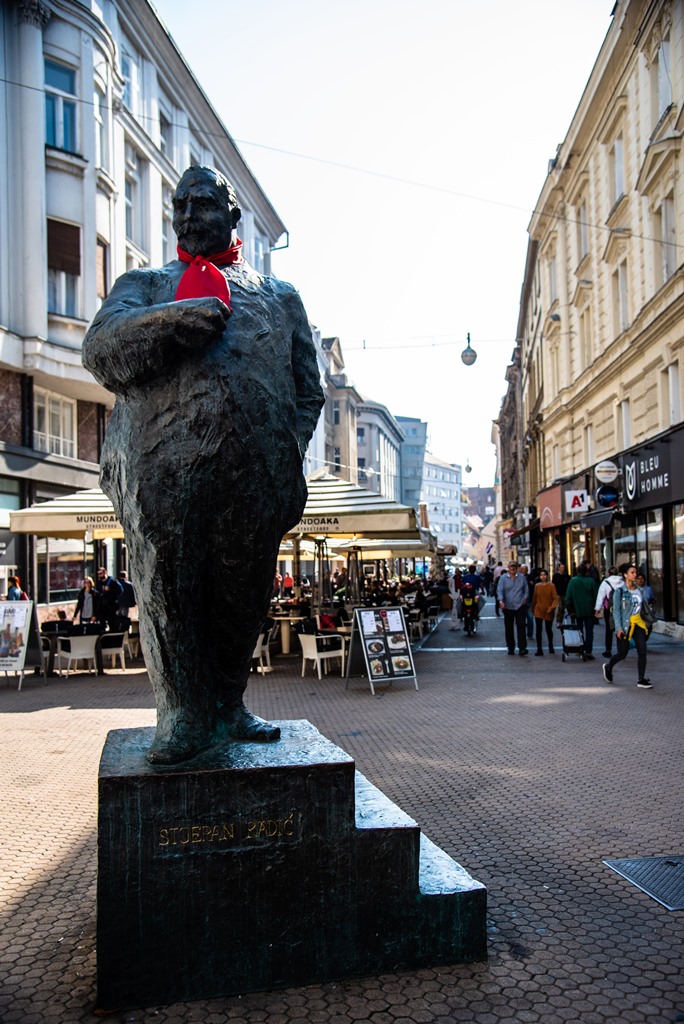
(Photo: Dhar Media)
The word cravat derives from the French cravate, a twisted French pronunciation of Croate. The Cravat is a Croatian symbol known and recognised worldwide and since 2008, the 18th of October has been declared as World Cravat Day by Academia Cravatica.
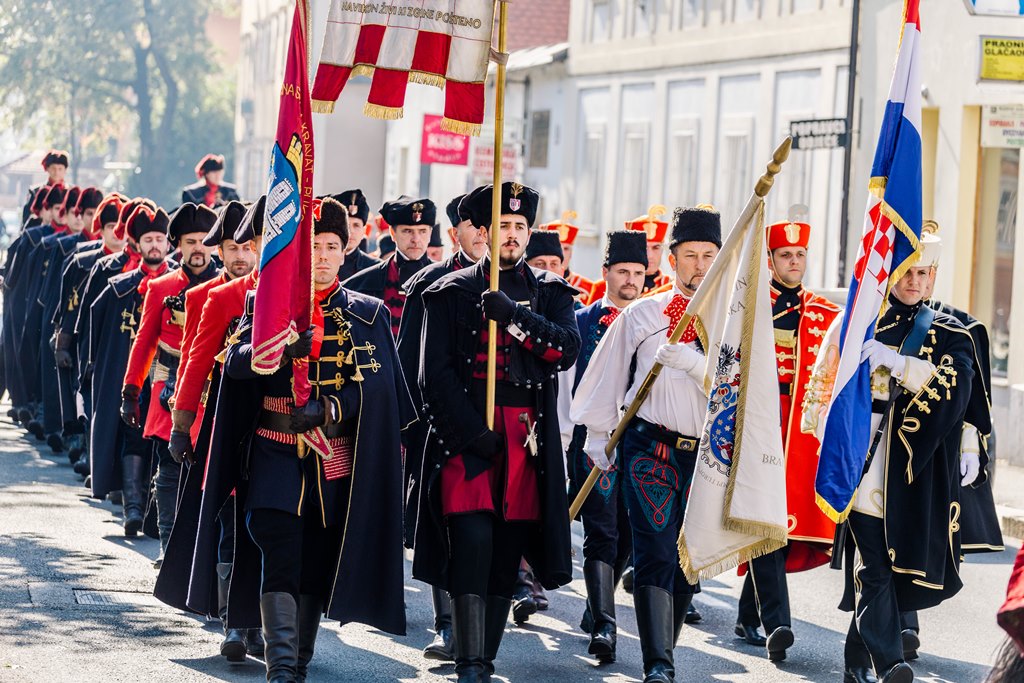
(Photo: Dhar Media)
- by croatiaweek
- October 16, 2018

Cravat being tied on King Tomislav (Photo: Dhar Media)
The forerunner to the modern necktie was the Croatian invention of the Cravat. The tie was first used as an item of clothing by Croatian soldiers back in the 17th century.
This week World Cravat Day will be marked and in the build-up to it, a red cravat has been tied on more than 50 monuments around the capital Zagreb as part of the 2nd Days of Cravat festival opened.
(Photo: Dhar Media)
The oldest Croatian portrait of a person wearing a cravat was painted in Dubrovnik in 1622 and depicted the great Croatian poet Ivan Gundulić with a scarf tied around his neck like a cravat. This portrait is currently safeguarded at the Rector’s Palace.

(Photo: Dhar Media)
The festival opened with the Royal Cravates Regiment performing the changing of the guards at St. Mark’s Square, recalling the historical significance of Croats in the Thirty Years’ War, after which the name of the cravat which the soldiers wore tied around the neck, occurred.

(Photo: Dhar Media)

(Photo: Dhar Media)
The word cravat derives from the French cravate, a twisted French pronunciation of Croate. The Cravat is a Croatian symbol known and recognised worldwide and since 2008, the 18th of October has been declared as World Cravat Day by Academia Cravatica.

(Photo: Dhar Media)
_________________
Nulla rosa sine spina
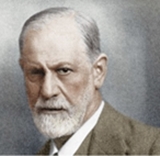
Eroo- Posts : 79067
2016-07-22
 Similar topics
Similar topics» European Fortress Day Celebrated in Šibenik
» 160 Years of Croatians in New Zealand Celebrated
» New Croatian Centre Opens in New York
» How many people with Croatian origin live outside Croatia?
» Number of passengers handled by Croatian airports up nearly 11% in H1
» 160 Years of Croatians in New Zealand Celebrated
» New Croatian Centre Opens in New York
» How many people with Croatian origin live outside Croatia?
» Number of passengers handled by Croatian airports up nearly 11% in H1
Page 1 of 1
Permissions in this forum:
You cannot reply to topics in this forum
 Events
Events Latest images
Latest images
 by Eroo 16/10/2018, 21:46
by Eroo 16/10/2018, 21:46